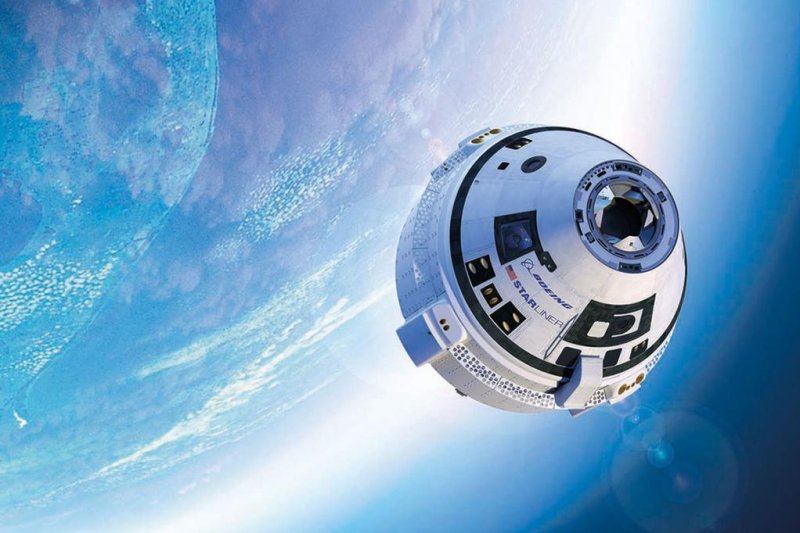Earlier this summer, Boeing's commercial crew spacecraft, Starliner, suffered an anomaly during an engine test. Photo by Boeing
Aug. 2 (UPI) -- Boeing and Space-X, NASA's Commercial Crew program partners, have pushed back the target launch dates for the first major test flights of their respective passenger spacecraft.
Earlier this year, NASA said the two companies would conduct unmanned test flight in August. Now, SpaceX is targeting November for its inaugural Crew Dragon test flight. Boeing won't launch its passenger spacecraft Starliner until "late 2018/early 2019."
The news, announced on NASA's Commercial Crew program blog, doesn't come as a surprise. Like many spaceflight programs, development has been slow-going, with milestones regularly delayed.
Last month, news broke that Starliner's launch-abort engines cut off during a test fire's cool-down phase. The engines reportedly shut off as a result of a propellant leak.
The news confirmed what a recent report issued by the U.S. Government Accountability Office had predicted -- that the program's timeline was unrealistically optimistic. The report cited safety concerns and testing delays, and warned that future delays could interrupt the access of American astronauts to the International Space Station.
NASA didn't offer specific reasons for the delays, but said the decision to push back the timeline was influenced by their commitment to safety.
"Flying safely has always taken precedence over schedule," NASA spokeswoman Marie Lewis told UPI. "As our partners are finalizing their systems, we're assessing remaining technical details for flight tests with and without crew."
For now, the succession of testing milestones remain the same.
"After the uncrewed flight tests, both companies will execute a flight test with crew prior to being certified by NASA for crew rotation missions," NASA communications specialist Stephanie Martin wrote in a blog post.
A second round of test flights -- manned flights -- will follow the inaugural flights. According to the updated timeline, SpaceX will conduct a manned Crew Dragon flight in April 2019. Boeing will conduct a manned Starliner flight in mid-2019.
Currently, NASA and its astronauts rely on Russian rockets and crew capsules to get to and from the International Space Station. But the transportation agreement between NASA and Roscosmos only extends through early 2020. To ensure astronauts' access to the space station goes uninterrupted, NASA could alter the length of future test flights.
"As part of its normal operations planning, NASA is continuing to assess multiple scenarios to ensure continued U.S. access to the International Space Station," Lewis told UPI. "One option under consideration would extend the duration of upcoming flight tests with crew on a commercial crew vehicle. The flight could be extended longer than the current two weeks planned for test flights, and likely less than a six-month full-duration mission."















